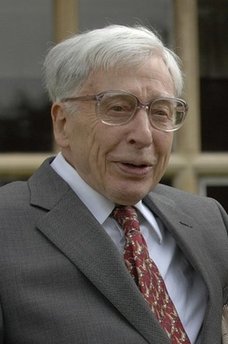In-vitro pioneer wins Nobel Prize in Medicine

British scientist Robert Edwards won the 2010 Nobel Prize in Physiology or Medicine on Monday for "his development of in-vitro fertilization," said the Nobel jury -- the Nobel Assembly at Sweden's Karolinska Institute in Stockholm.
"The Nobel Assembly at Karolinska Institute has decided to award the 2010 Nobel Prize in Physiology or Medicine to Robert Edwards," said Goran Hansson, secretary of the Nobel prize committee.
2010 Nobel Prize is for in-vitro fertilization, the human eggs can be fertilized outside a woman's body. Edwards began his fundamental work in 1950s, the Nobel Committee said.
Through 20 years of discovery one after another, the breakthrough came in 1978 when the first tube baby was born in 1978, the committee said.

There has been about four million babies born out of IVF technology so far.
Edwards, 84, connected to Cambride University has received the Lasker Prize in 2001.
Edwards is the 196th Nobel laureate in Physiology or Medicine.
The winners of the physics prize will be announced on Tuesday, to be followed by those for chemistry on Wednesday, literature on Thursday, peace on Friday and economics next Monday.
The annual Nobel Prizes are usually announced in October and are handed out on Dec. 10, the anniversary of the 1896 death of Alfred Nobel, a Swedish industrialist and the inventor of dynamite.
Nobel died childless and dedicated his vast fortune to create "prizes to those who, during the preceding year, shall have conferred the greatest benefit on mankind."
The prizes have been awarded since 1901. Each prize consists of a medal, a personal diploma and a cash award of 10 million Swedish kronor(about 1.43 million U.S. dollars).
 0
0 






